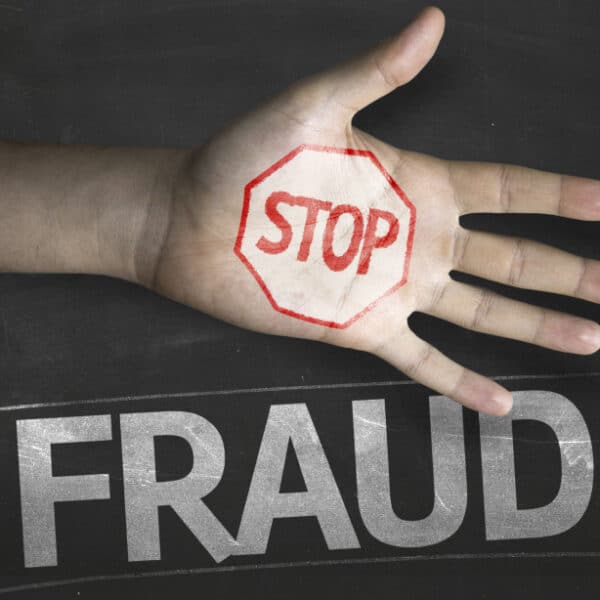 Dealing with fraud
Dealing with fraud
We all know that the majority of people who work in and use the NHS are honest, but a minority will seek to defraud it. At least £263 million is lost to fraud each year. Fraud is widespread but no organisation wants the loss of income, internal disruption or damage to reputation that fraud brings with it. Often people have concerns about reporting fraud but are uncertain if fraud is being committed, don’t know who to report it to, wouldn’t want anyone to get into trouble and are concerned about repercussions and reprisals. It is important that we are aware of the different types of fraud that are committed and are not afraid to report fraudulent behaviour.
Dermid McCausland, Managing Director of NHS Protect has previously said: “As a rule of thumb, if somebody does something dishonest to gain a financial advantage, that is probably fraud. Generally, the term ‘fraud’ describes offences such as deception, forgery, and misrepresentation or concealment of facts. Fraudsters can be quite imaginative, and the size and diversity of the health service means a wide variety of types of fraud are detected.”
Types of NHS fraud
There are many ways in which fraud is committed in the NHS including:
Patients: patient fraud could include patients who claim for free or reduced cost treatment and services when they are not entitled to it, or using aliases to get prescription drugs.
Health professionals: fraud by NHS professionals could include those who claim for treatments or services not received, e.g. dental or optical treatments), and working elsewhere while on sick leave.
Managers and staff: fraud by NHS managers and staff includes submitting dishonest claims for grants and payments, e.g. false or inflated travel or subsistence claims and fraudulent applications for funding and training.
Contractors and suppliers: contractor and supplier fraud includes charging for items of a higher quality or greater quantity than those supplied, and using inappropriate tendering processes.
There is sometimes a conflict of interest which can result in potential fraud such as roles and responsibilities held within GP practices and Clinical Commissioning Groups (CCGs), also ownership or part-ownership of private companies, businesses or consultancies likely or potentially seeking to do business with the NHS. There have also been cases of fraud within voluntary or charity organisations who work with NHS services.
Pharmacy fraud
One of the biggest areas where fraud is carried out in General Practice is in dispensary:
- Medicines prescribed for sale or own use
- False claims for items dispensed
- Duplicate prescriptions
- Dispensing cheaper drugs but claiming for more expensive drugs
- Retaining income for prescriptions and claim the patient is exempt
Prescription drug fraud and misuse is a significant and growing problem. People obtain prescription drugs unlawfully in numerous ways, including forging prescriptions, obtaining prescribed drugs illegally through the Internet, acquiring drugs that were legally prescribed to family members or friends, and altering prescriptions to increase the quantity.
The Bribery Act 2010
The Bribery Act is designed to combat bribery and corruption in the public and private sector. The Act deals with the offences of bribing another person and the offences relating to being bribed. In addition to corporate liability there is potential personal liability with unlimited fines and/or imprisonment for up to 10 years. Things to consider when being made an offer:
Is what I am being offered reasonable and proportionate?
Would I consider it reasonable and proportionate if I were a third party?
Am I being offered this because of my position and the potential influences I may have?
What should I do?
Report any concerns immediately.
NHS Counter Fraud Service
The NHS Counter Fraud Service (NHS CFS), renamed NHS Protect in April 2011, has a zero tolerance towards fraud and corruption and represents the strongest deterrent to those committing or considering committing fraud. The NHS Protect Investigators gather evidence, establish the facts and present the case to the appropriate persons who can then make a decision with regard to the application of sanctions. Sanctions can include criminal sanctions resulting in prosecution, disciplinary sanctions resulting in dismissal, and civil action resulting in money being recovered. NHS Protect urges people to call their free, confidential NHS Fraud and Corruption Reporting Line on 0800 028 40 60 to report suspicions about fraud.
Cases of Fraud
A doctor was caught trying to cheat the NHS out of thousands of pounds by pretending he had treated patients he hadn’t. Investigators found that one patient he claimed to have seen was in prison, and two patients who consulted him were dead. He also claimed to have given a flu jab to a patient who was abroad on holiday.
Another case involved a GP who would make out prescriptions in the name of patients on the list, claim payment from the NHS, and then cancel the entry on the patient’s records.
Just this week a manager for a Leeds-based NHS trust has been quizzed by police investigating alleged fraud believed to involve up to £3m of public money.
Whilst fraud is a serious issue it is important to remember that it is only a minority of staff, patients and suppliers that defraud the NHS.
Links






